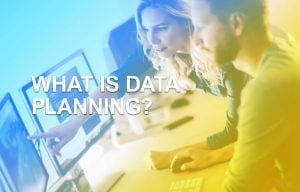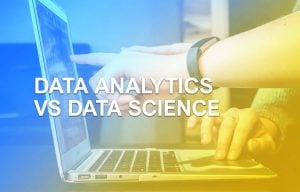Data Analytics vs Data Science
John O'Shea
Data analytics and data science are indispensable to your business if you want to stay ahead of competition. These two technologies have gained popularity with the surge in the reliance of big data to make key decisions. As more organisations and businesses recognize the value of big data and statistical analysis in decision making, so does the demand for these two technologies continue to grow.
Yet, most people tend to use them interchangeably, owing to the evolving nature of data analytics and data science . This is mostly because of their linkage with big data. The reality is that there’s a stark difference between the two.
In this article, we give you an overview of data analytics and data science and how you can leverage them alongside big data to take your business to the next level.
Data analytics vs Data Science
Have you stopped to think about how your business can make sense of big data? Well, you first need to distinguish between data analytics and data science.
What is data analytics?
Data analytics is all about data collection, organisation and maintenance. But that’s not all. Analytics also involves the use of programming, mathematical and statistical knowledge and other techniques to gain actionable insights from the data in your possession. This means you need to engage a data analyst to identify trends and solve problems presented by data. Even then, data analysts don’t drive the decision-making process. Professionals working in data analysis respond to requests coming from decision-makers.
What is data science?
Data scientists use maths, programming and statistics to make sense of structured and unstructured data to drive organisational strategy. They’re skilled in data modelling, use of algorithms, data mining and machine learning to automate processes. Data scientists have specialty industries they work in, so they offer context to the raw data.
Where then is the convergence between data science and data analytics? The impact of these two fields on how you conduct business is that they work closely with your product development, sales and marketing, finance, information technology departments and business leaders to spot issues, understand consumer behaviour, identify trends, and offer solutions that inform strategic decision making.
Data Analytics Vs Data Science: How do they Compare?
Data analytics and data science are similar in several ways. They both use data to give perspective into an organisation’s operations that is crucial for decision making. These two technologies are in high demand despite overlapping in many ways. Here are some of the ways in which both fields are similar:
1. Technical skills
Both data science and data analytics require proficiency in programming skills, statistics, data visualisation tools and modelling. Professionals in this field must have a methodical approach to project management and problem solving.
2. Colossal volumes of data
Professionals in data analytics and data science work with vast volumes of data points. These may include low quality data that requires cleaning, maintaining and organisation to ensure accuracy in analysis.
3. Communication skills
Data analysts and data scientists must present their findings to colleagues in other departments. This calls for them to communicate clearly and effectively.
Differences Between Data Analytics and Data Science
The main difference between these two fields is the scope. A data scientist does a lot more than a data analyst despite working on the same data sets. As such, professionals pursuing a data science career will in most cases start off as data analysts. Here are some of the notable differences between the two:
1. Data management and manipulation
While a data analyst will stop at collecting, storing, maintaining and analysing results, a data scientist will go further in manipulating the data using more complex tools like machine learning and algorithms.
2. Responsibilities
Data analysts are keen on spotting trends and solving problems while their counterparts model data to identify opportunities, make predictions and support strategy.
3. Questions and answers
Data scientists will look ask possible questions and find the best answers. Conversely, data analysts will receive questions and analyse data to provide solutions.
Data analyst vs Data Scientist: Which way to go?
If you’re in the dilemma of determining data science vs data analytics you’ll do well to begin by recognising that the two are two sides of one coin. Data analytics is a branch of data science, the latter being an umbrella term. Data science combines various disciplines that include computer science, mathematics, information science, artificial intelligence and information science. As such, you need both data science and data analytics to make sense of big data and make significant strides in improving business intelligence and helping you put your business ahead of your competition.
Need help with your Data Management? Contact Growthonics today to learn how we can help.
Subscribe to our mailing list
Find out how we can help
Our Offices
China Works,
Black Prince Road, Vauxhall,
London, SE1 7SJ
GROWTHONICS © 2022 ALL RIGHTS RESERVED






